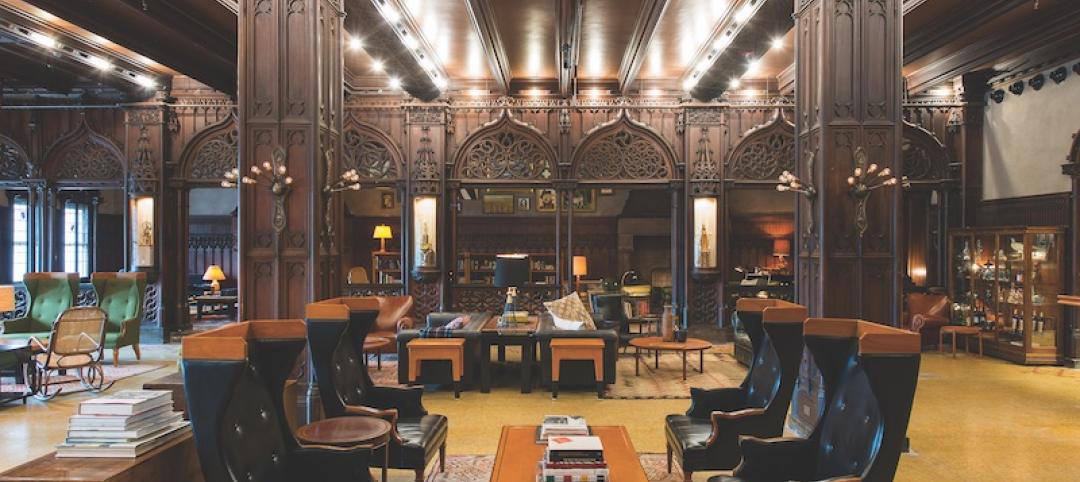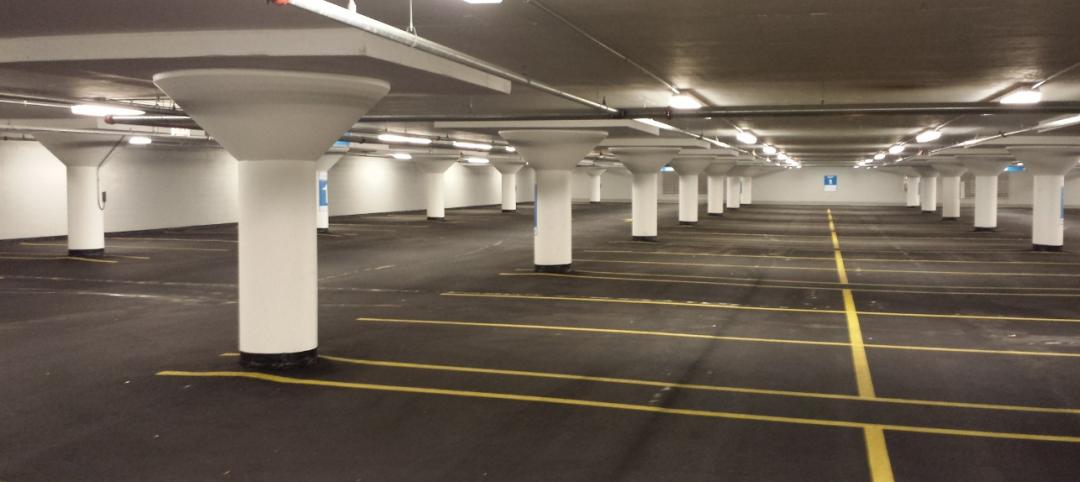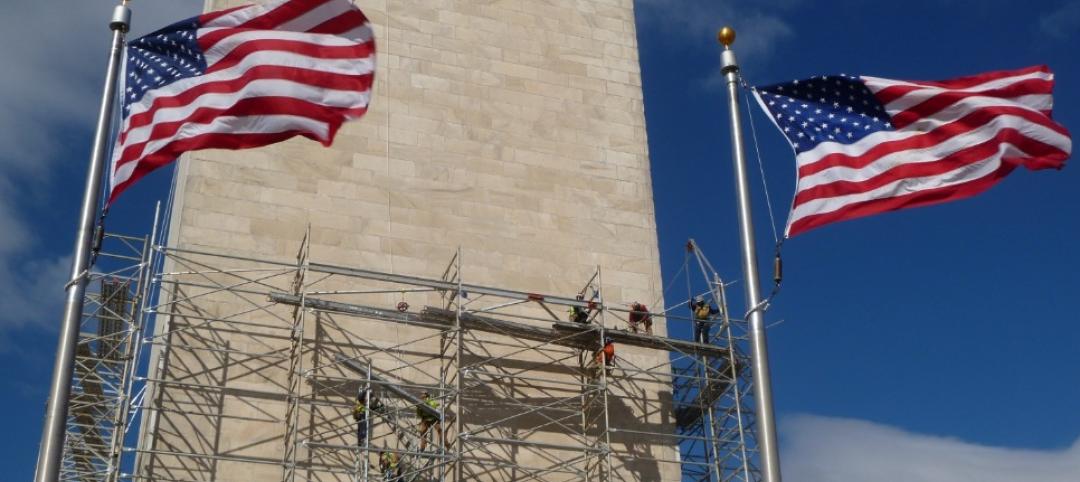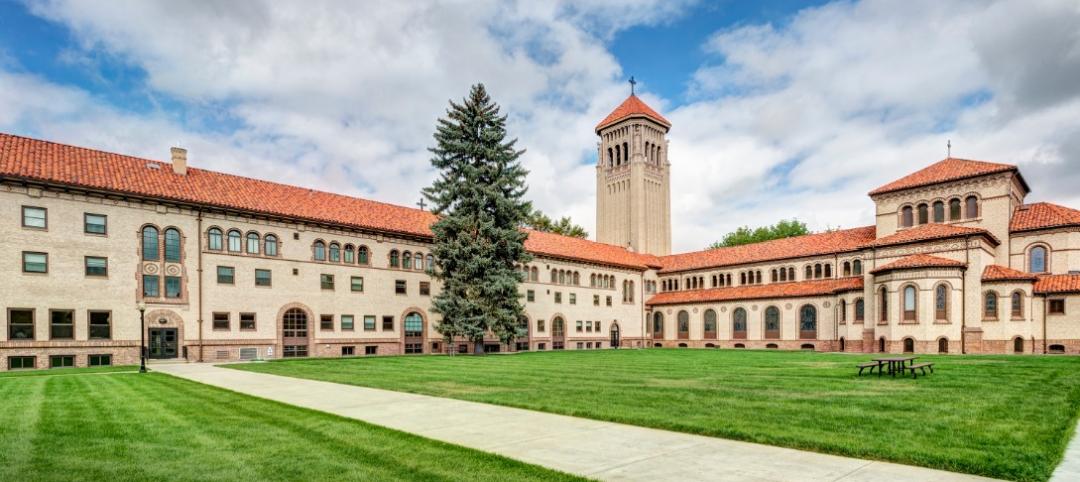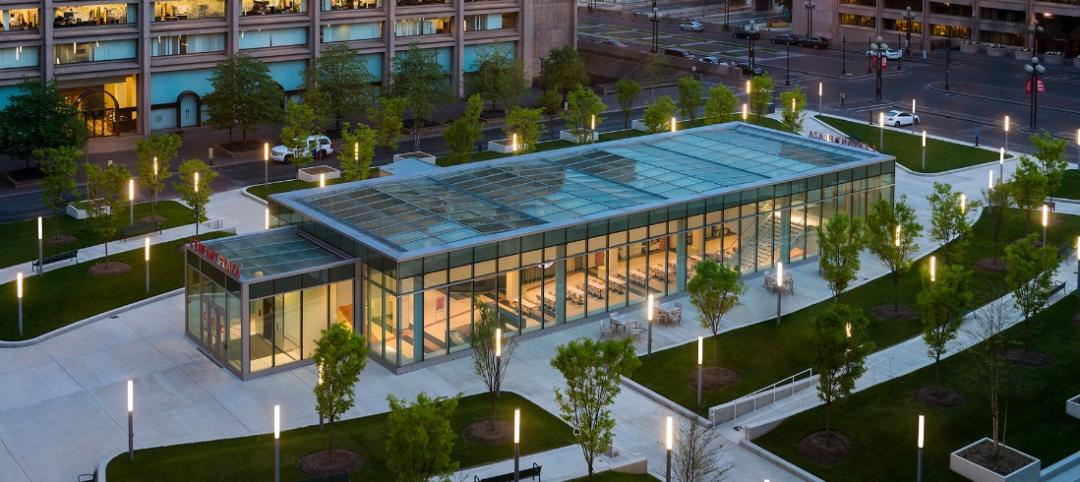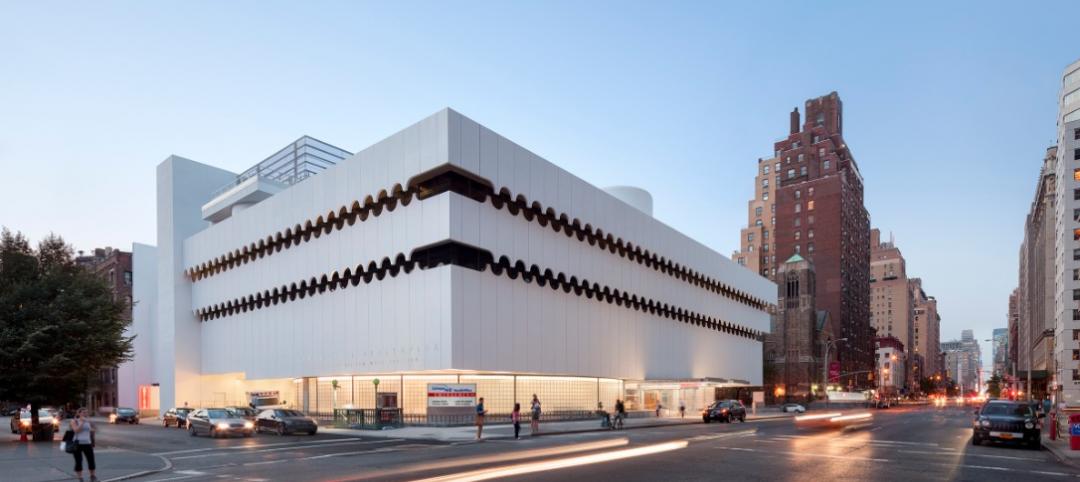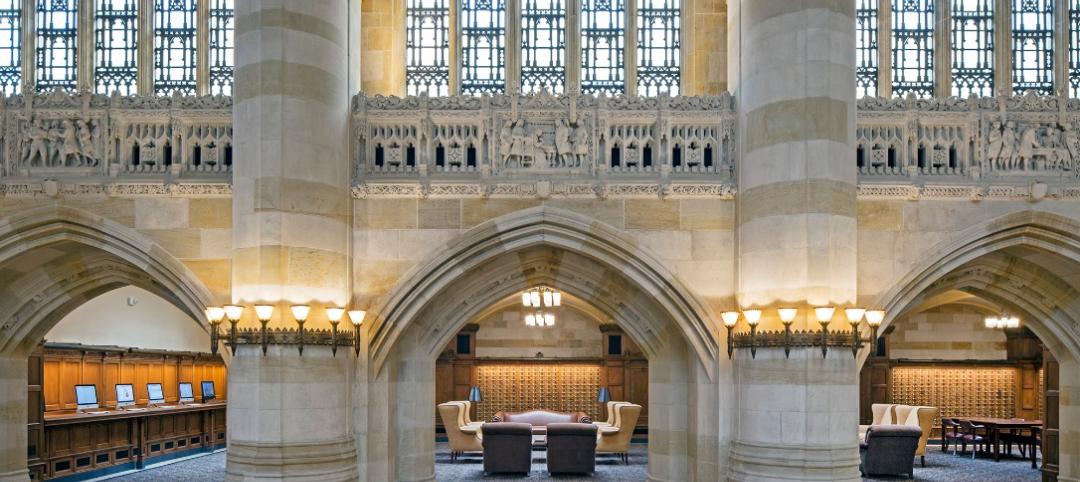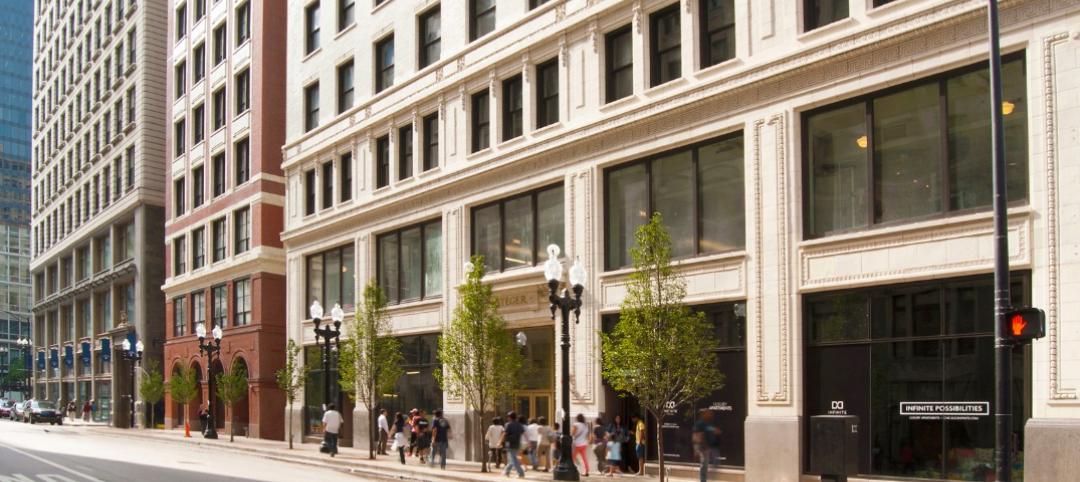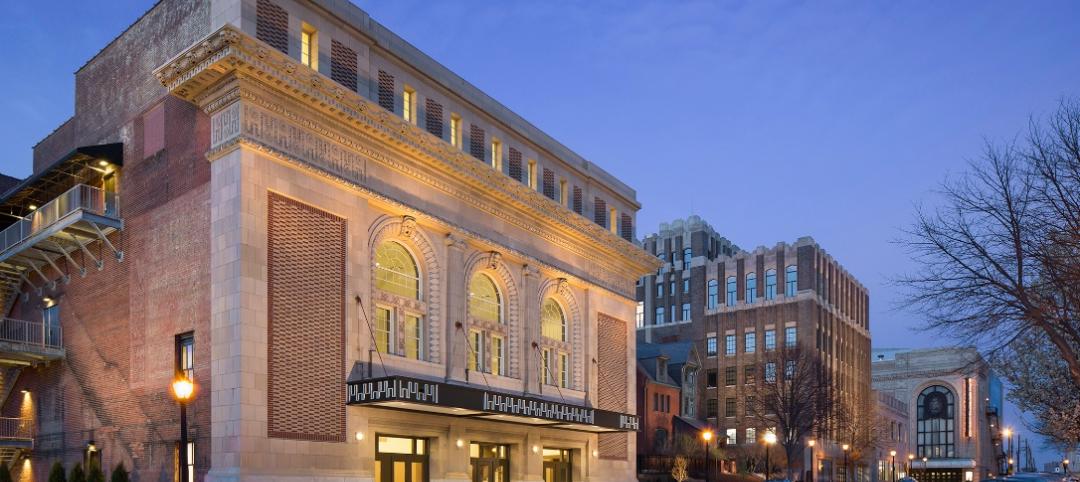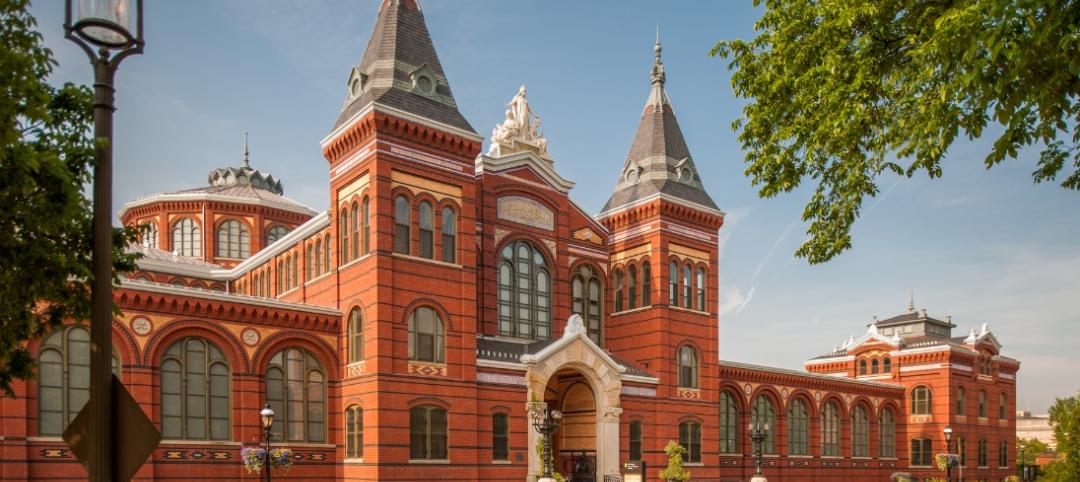The Sanctuary, a 30-unit condo conversion in Southeast Washington, D.C., may be a sign of things to come for some of the 850 or so places of worship in the Nation’s Capital that are closing their doors. Such was the case for the Way of the Cross church. When its congregation decided to relocate to the suburbs, The Rubin Group (in partnership with Regua) snapped up the 1898 Gothic Revival church and 1914 annex.
The project team, led by local design firm Bonstra| Haresign Architects, wanted to change some lites in the stained glass windows so that residents could look out. This did not sit well with the city’s Historic Preservation Review Board. Only after seeing a mockup prepared by consultant Cumberland Stained Glass did the Review Board agree to the change. The transparent replacement glass has a stippled effect on the exterior that met the HPRB’s approval.
The windows became The Sanctuary’s chief sales edge. All 30 units, including the $1.5 million penthouse, sold in less than eight months.
 © Eric Taylor Photography.
© Eric Taylor Photography.
Project Summary
Bronze Award Winner
Building Team: Bonstra|Haresign Architects (submitting firm, architect) Structura (SE) VIKA Capitol (CE) Capitol Engineering Group (ME) Cumberland Stained Glass (glazing) Potomac Construction Group (GC).
Details: 34,693 sf Total cost: $15.4 million Construction time August 2014 to December 2016 Delivery method Negotiated contract.
See all of the 2017 Reconstruction Award winners here
Related Stories
Reconstruction Awards | Nov 11, 2016
Exclusive Chicago club re-emerges as a boutique hotel
Built in 1893 for the World’s Columbian Exposition, the CAA was an exclusive social club founded by leading figures in American sports and commerce.
Reconstruction Awards | Dec 1, 2015
Massive Chicago parking garage gets overdue waterproofing
Millennium Lakeside Garage, the largest underground parking facility in the U.S., hadn’t been waterproofed since the 1970s. The massive project took nearly 2½ years and 33,554 man-hours.
Reconstruction Awards | Nov 30, 2015
Washington Monument restored after 2011 East Coast earthquake
This restoration and repair project, which was completed under budget and eight days early (despite several setbacks), involved re-pointing 2.5 miles of mortar joints, repairing 1,200 linear feet of cracks, and installing 150 sf of Dutchman repairs. Construction took place from November 2011 to May 2014.
Reconstruction Awards | Nov 30, 2015
Denver's 107-year-old seminary campus modernized
The scope of the project included the seminary dorms, library, and chapel, all of which posed their own set of obstacles.
Reconstruction Awards | Nov 24, 2015
Center of I.M. Pei-designed plaza part of Washington redevelopment
The L’Enfant Plaza, a three-story below-grade mall, was renovated to include a new glass atrium pavilion and a 40-foot-long, interactive LED.
Reconstruction Awards | Nov 24, 2015
Manhattan's first freestanding emergency department a result of adaptive reuse
The Lenox Hill Healthplex, a restoration of the Curran O’Toole Building, has glass-block walls and a carefully preserved exterior.
Reconstruction Awards | Nov 19, 2015
Nave restored at Yale’s Sterling Memorial Library
Turner Construction and Helpern Architects revived the 150-foot-long nave, which was embellished with stained glass windows by G. Owen Bonawit, stone carvings by René P. Chambellan, and decorative ironwork by Samuel Yellin.
Reconstruction Awards | Nov 19, 2015
Infinite Chicago redevelopment bridges past to present
The renovation of three historic downtown buildings—the Gibbons and Steger Buildings and Pickwick Stables—includes a multi-level concrete walkway connection.
Reconstruction Awards | Nov 18, 2015
Sun Theater serves the youth of St. Louis
Lawrence Group and property owner TLG Beaux Arts raised $11 million to restore the 26,000-sf theater into a modern performance venue.
Reconstruction Awards | Nov 17, 2015
Smithsonian Institution’s Arts and Industries Building again an exposition and museum space
After removing decades’ worth of unfortunate additions to expose 17 historic interior spaces for the National Historic Landmark, the Building Team zoned in on the client’s key concern.



